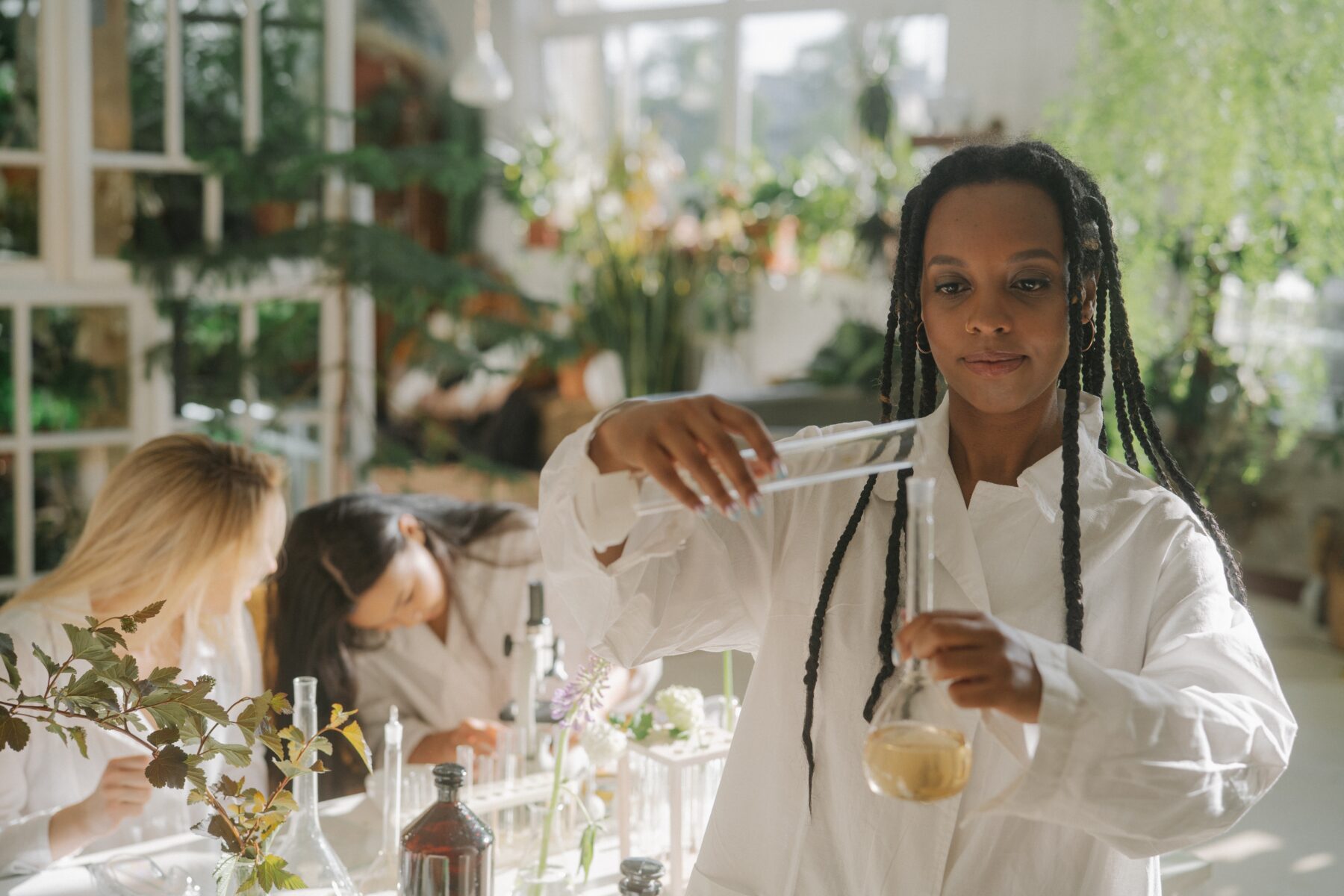March is Women’s History Month, and to celebrate, we’re shining the spotlight on some frequently overlooked women who have made significant contributions in the fields of biology, ecology, and environmental science… and who were also followers of Jesus. That’s right, folks, women scientists of faith who cared about creation. There are actually more than a handful of them out there. Here’s a few notable women we’re celebrating this month:
Hildegard of Bingen (1098–1179)
“We shall awaken from our dullness and rise vigorously toward justice. If we fall in love with creation deeper and deeper, we will respond to its endangerment with passion.”
Hildegard is considered to be the founder of scientific natural history in Germany. In addition to her impact on natural history, she was also a German Benedictine abbess, writer, composer, philosopher, and Christian mystic. In short, she was my kind of gal.
“Every creature is a glittering, glistening mirror of Divinity.”
Sophia Brahe / Sophia Thott Lange (22 September 1556 or 24 August 1559 – 1643)
Sophia Brahe was a Danish horticulturalist with knowledge of astronomy, chemistry, and medicine. She worked closely with her brother Tycho Brahe, who taught Sophia chemistry but left her to learn astronomy on her own. Tycho said she had a “determined mind.” Her work alongside her brother’s laid the groundwork for Sir Isaac Newton.
Maria Sibylla Merian (2 April 1647 – 13 January 1717)
“Art and nature shall always be wrestling until they eventually conquer one another so that the victory is the same stroke and line: that which is conquered, conquers at the same time.”
Maria Sibylla Merian was a German entomologist and scientific illustrator. She was the first scientist to document the life cycle of insects for the public. Maria published a groundbreaking illustrated work on South American plants, animals, and insects. Her keen observations captured the handiwork of God in nature.
Antoinette Brown Blackwell (20 May 1825 – 5 November 1921)
“There were angry men confronting me and I caught the flashing of defiant eyes, but above me and within me, there was a spirit stronger than them all.”
Antoinette Brown Blackwell is known for being the first female evolutionary scientist as well as the first woman in the United States ordained by a major Christian denomination. She only served for one year in the latter role, but as an evolutionary scientist, she demonstrated through examples from the natural world that female inferiority was neither inevitable nor natural. Her husband, Samuel Charles Blackwell, supported her efforts for women’s reform.
Ellen Henrietta Swallow Richards (3 December 1842 – 30 March 1911)
“The environment that people live in is the environment that they learn to live in, respond to, and perpetuate. If the environment is good, so be it. But if it is poor, so is the quality of life within it.”
Ellen Swallow Richards served as an industrial and safety engineer, environmental chemist, and university faculty member in the United States. She is known as the “Mother of Ecology” and was also the founder of the home economics movement. She was the first woman in America to be accepted into a school of science and technology and the first to obtain a degree in chemistry.
“The quality of life depends upon the ability of society to teach its members how to live in harmony with their environment—defined first as family, then the community, then the world and its resources.”
Gerty Cori (August 15, 1896 – October 26, 1957)
“The unforgotten moments of my life are those rare ones which come after years of plodding work, when the veil over nature’s secret seems suddenly to life, and when what was dark and chaotic appears in a clear and beautiful light and pattern.”
Gerti Cori was the third woman to win a Nobel Prize in science and the first to be awarded the Nobel Prize in Physiology or Medicine. She uncovered the process of cellular energy storage and release.
Katharine Hayhoe (born 1972)
“Every action matters, every bit of warming matters. Every choice matters. So, now more than ever, everything that we do matters. And that is scary, but it also offers some hope because we have the opportunity to truly alter the future of our planet.”
Katharine Hayhoe is an atmospheric scientist and professor of political science at Texas Tech University, where she directs the Climate Science Center. She is an evangelical Christian and the daughter of missionaries. In 2019, she was named one of the United Nations Champions of the Earth in the science and innovation category.
What other women of science and faith can you think of that have made a difference for the planet and its occupants? Feel free to share in the comments on Instagram, so we can continue to celebrate together the ways faith, science, and women have intersected for the betterment of creation.





 Copyright
2024
Root and Vine
Copyright
2024
Root and Vine